Green tea extract is everywhere - in capsules, powders, energy bars, even skincare. It’s marketed as a superfood, a metabolism booster, a cancer fighter. But what most people don’t realize is that this popular supplement can seriously interfere with the medications they’re taking. If you’re on blood pressure pills, cholesterol drugs, or cancer treatments, drinking green tea or popping an extract capsule might be doing more harm than good.
How Green Tea Extract Really Works in Your Body
Green tea extract isn’t just concentrated tea. It’s a powerful mix of chemicals, mostly catechins like EGCG (epigallocatechin gallate), plus caffeine. A single cup of brewed green tea has about 50-100 mg of EGCG. But a typical supplement? That’s 250-500 mg - sometimes even 800 mg. That’s 8 times more than what you’d get from tea.
These compounds don’t just sit around. EGCG blocks special transporters in your gut and liver that help move drugs into your bloodstream. Think of them like bouncers at a club - they’re stopping certain drugs from getting in. Caffeine, meanwhile, acts like a stimulant. It can amplify the effects of other stimulants, like ADHD meds or asthma inhalers, pushing your heart rate up dangerously.
This isn’t theoretical. Studies show clear, measurable drops in drug levels when green tea extract is taken at the same time. One study found that nadolol, a blood pressure medication, had its absorption cut by 83% when taken with green tea extract. That’s not a small drop - that’s treatment failure.
8 High-Risk Medications That Don’t Play Well With Green Tea Extract
Some drugs are especially vulnerable. Here are the ones you need to be extra careful with:
- Nadolol (Corgard) - Used for high blood pressure and heart rhythm issues. Green tea extract can reduce its absorption by up to 83%. Your blood pressure won’t drop. You might not even know why.
- Atorvastatin (Lipitor) and Rosuvastatin (Crestor) - These cholesterol drugs rely on the same transporters EGCG blocks. Studies show absorption drops by 25-40%. Your LDL might stay high even if you’re taking your pills.
- Bortezomib (Velcade) - This is serious. Used to treat multiple myeloma. EGCG binds directly to the drug and cuts its effectiveness by half. Cancer centers like MD Anderson report a 15% treatment failure rate in patients who kept taking green tea supplements.
- 5-Fluorouracil - A chemo drug. Green tea extract can raise its blood levels by 35-40%, increasing the risk of severe side effects like mouth sores, low blood counts, and nerve damage.
- Imatinib (Gleevec) - Used for leukemia and other cancers. Green tea extract reduces its absorption by 30-40%. This can mean the difference between control and progression of the disease.
- Lisinopril - Another blood pressure med. Studies show absorption drops by about 25%. Again, your numbers won’t improve.
- Beta-agonists (albuterol, salbutamol) - Used in asthma inhalers. Combine with green tea’s caffeine, and your heart rate can spike 20-30 beats per minute. That’s not just a flutter - it’s palpitations, dizziness, even chest pain.
- Warfarin (Coumadin) - Blood thinner. While not always direct, green tea extract can cause unpredictable INR spikes or drops. One Cleveland Clinic review found 18% of unexplained INR changes in warfarin patients were linked to green tea use.
These aren’t rare cases. They’re documented in peer-reviewed journals. The FDA has issued 17 warning letters to supplement makers in 2022 alone for failing to warn consumers about these risks.
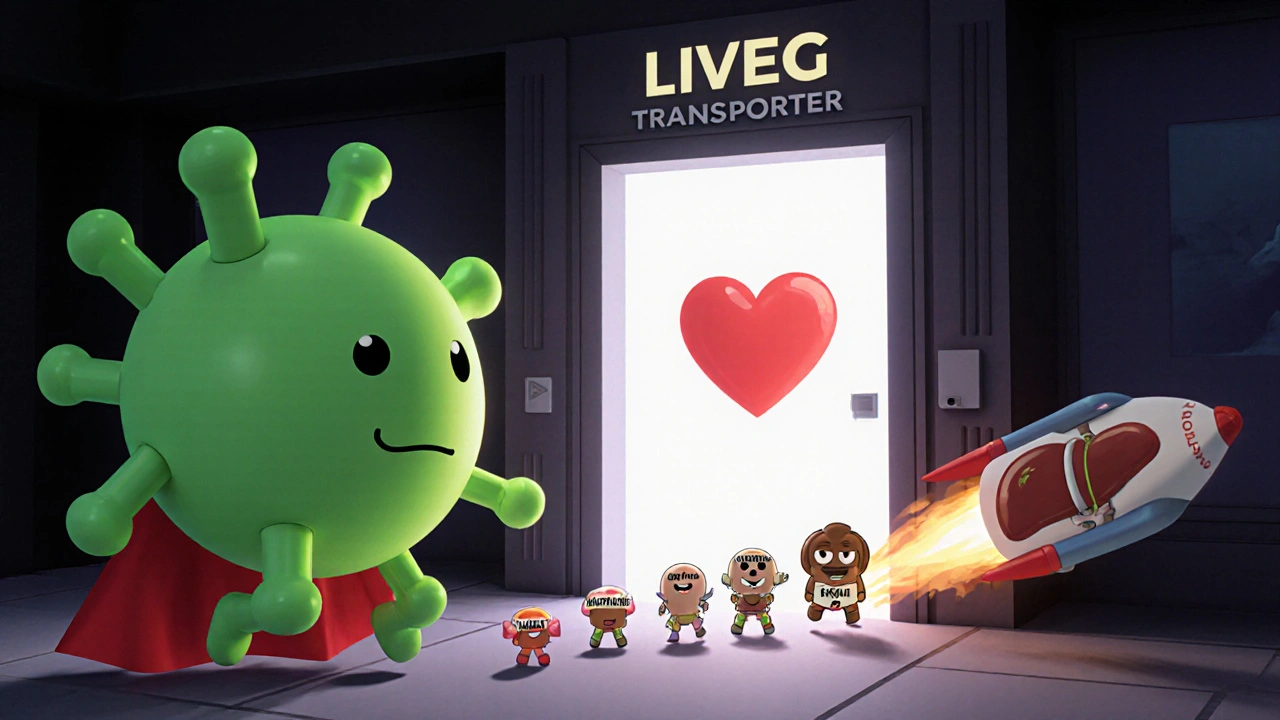
Why ‘Natural’ Doesn’t Mean Safe
It’s a dangerous myth: if it’s natural, it’s harmless. People think, ‘I’m drinking tea - how bad could it be?’ But supplements aren’t tea. They’re concentrated chemicals with no regulation.
The Dietary Supplement Health and Education Act (DSHEA) of 1994 lets companies sell supplements without proving they’re safe or effective. No pre-market testing. No required interaction warnings. Only 12% of green tea extract products even mention drug interactions on the label, despite FDA guidance saying they should.
Reddit threads and patient forums are full of stories: people taking Adderall and green tea extract, then ending up in the ER with heart palpitations. Others taking blood pressure meds, feeling fine - until their doctor says their numbers are off and they realize they’ve been drinking green tea extract daily for months.
One Drugs.com user wrote: ‘I didn’t think to ask my doctor. I assumed it was just tea.’ That’s the problem. People aren’t being warned.
What You Should Do Right Now
If you take any prescription meds, here’s what to do:
- Check your supplements. Look at the label. Does it say ‘green tea extract’? How much EGCG? If it’s over 100 mg per serving, you’re in the high-risk zone.
- Ask your doctor or pharmacist. Don’t assume they know. Bring your supplement bottle. Say: ‘I take this daily. Could it interfere with my meds?’
- Separate timing. If your doctor says it’s okay to keep taking it, wait at least 4 hours between your medication and the extract. That cuts interaction risk by about 60%.
- Stop cold if you’re on bortezomib. No exceptions. The National Comprehensive Cancer Network says avoid it entirely.
- Switch to brewed tea. If you love green tea, stick to 1-2 cups a day. That’s under 100 mg EGCG and under 100 mg caffeine - low enough to avoid most interactions.
Don’t wait for a problem to happen. If you’re on a narrow-therapeutic-index drug - one where small changes in blood levels can cause big effects - green tea extract is a gamble you shouldn’t take.
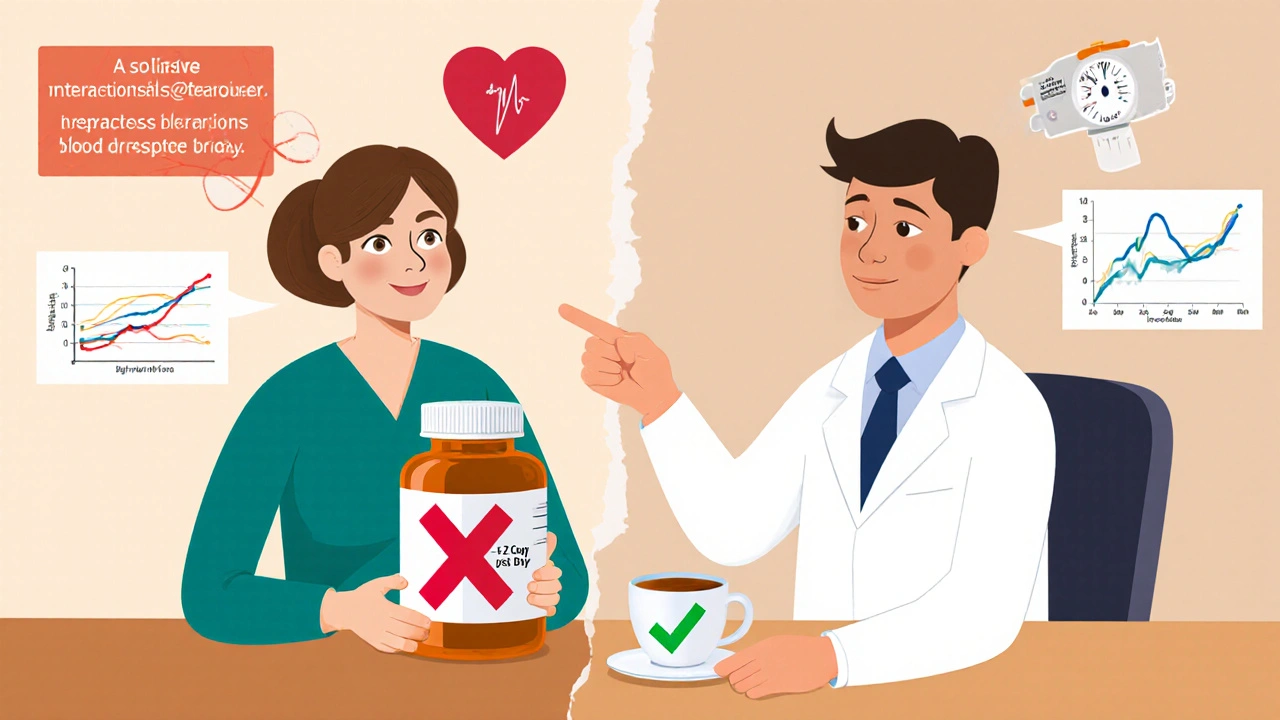
What’s Being Done About It?
The FDA is finally paying attention. In 2023, they named green tea extract a ‘high-priority substance’ for interaction warnings. The European Medicines Agency added 12 new interactions to their database, including one with dabigatran (Pradaxa), a blood thinner.
But progress is slow. The supplement market for green tea extract hit $2.17 billion in 2022 and is still growing. Demand is rising because cancer survivors and aging adults are looking for ‘natural’ ways to feel better. But without clear labeling and better education, people are being put at risk.
Research is now looking at ways to make safer extracts - maybe by removing certain catechins while keeping the antioxidants. But that’s years away. Right now, the safest version of green tea is the one you brew at home.
Bottom Line: Be Informed, Not Assumed
Green tea extract isn’t evil. But it’s not harmless either. It’s a potent biochemical agent that interacts with your body’s drug systems in predictable, dangerous ways. If you’re on medication, especially for heart, liver, cancer, or mental health, you need to treat it like a drug - because that’s what it is.
Don’t let the word ‘natural’ fool you. Your pills were tested. Your supplements weren’t. Talk to your doctor. Check your bottle. Wait 4 hours. Or better yet - skip the extract. Drink tea instead. It’s safer, cheaper, and just as good for your health.
Can I still drink green tea if I’m on medication?
Yes, but only in moderation. One to two cups of brewed green tea per day (under 100 mg EGCG and 100 mg caffeine) is generally safe for most people on medication. Avoid drinking it at the same time as your pills - wait at least 4 hours. Skip green tea extract supplements entirely unless your doctor says it’s okay.
Does green tea extract interact with blood pressure meds?
Yes, and it’s a common problem. Green tea extract can reduce absorption of beta-blockers like nadolol and ACE inhibitors like lisinopril by 25-83%. This means your blood pressure won’t drop as it should. If your numbers suddenly become harder to control, ask your doctor if your supplement could be the cause.
Is green tea extract safe for cancer patients?
No, not if you’re on certain chemo drugs. Green tea extract can cut the effectiveness of bortezomib (Velcade) by up to 50%, and interfere with 5-fluorouracil and imatinib. Cancer centers like MD Anderson and the National Comprehensive Cancer Network recommend avoiding green tea extract entirely during treatment. Always check with your oncologist before taking any supplement.
Can green tea extract affect my cholesterol levels?
It can interfere with statins like Lipitor and Crestor, reducing their absorption by 25-40%. This means your LDL (bad cholesterol) may stay high even if you’re taking your pills. If your cholesterol numbers aren’t improving, your supplement could be the hidden reason.
Why don’t supplement labels warn about these interactions?
Because they don’t have to. Under U.S. law (DSHEA), supplement makers aren’t required to prove safety or list drug interactions before selling. Only 12% of green tea extract products include interaction warnings, even though the FDA says they should. It’s a loophole that puts consumers at risk.
What should I do if I think green tea extract is affecting my meds?
Stop taking the supplement immediately and contact your doctor or pharmacist. Bring the bottle with you. If you’re on a critical medication like warfarin, bortezomib, or a beta-blocker, don’t wait for symptoms - get checked now. Your provider may need to adjust your dose or run blood tests to see if your drug levels dropped.
If you’re taking any prescription meds, your green tea extract isn’t just a harmless habit - it’s a potential risk. Don’t guess. Ask. Check. Wait. Or better yet - skip it. Your body will thank you.
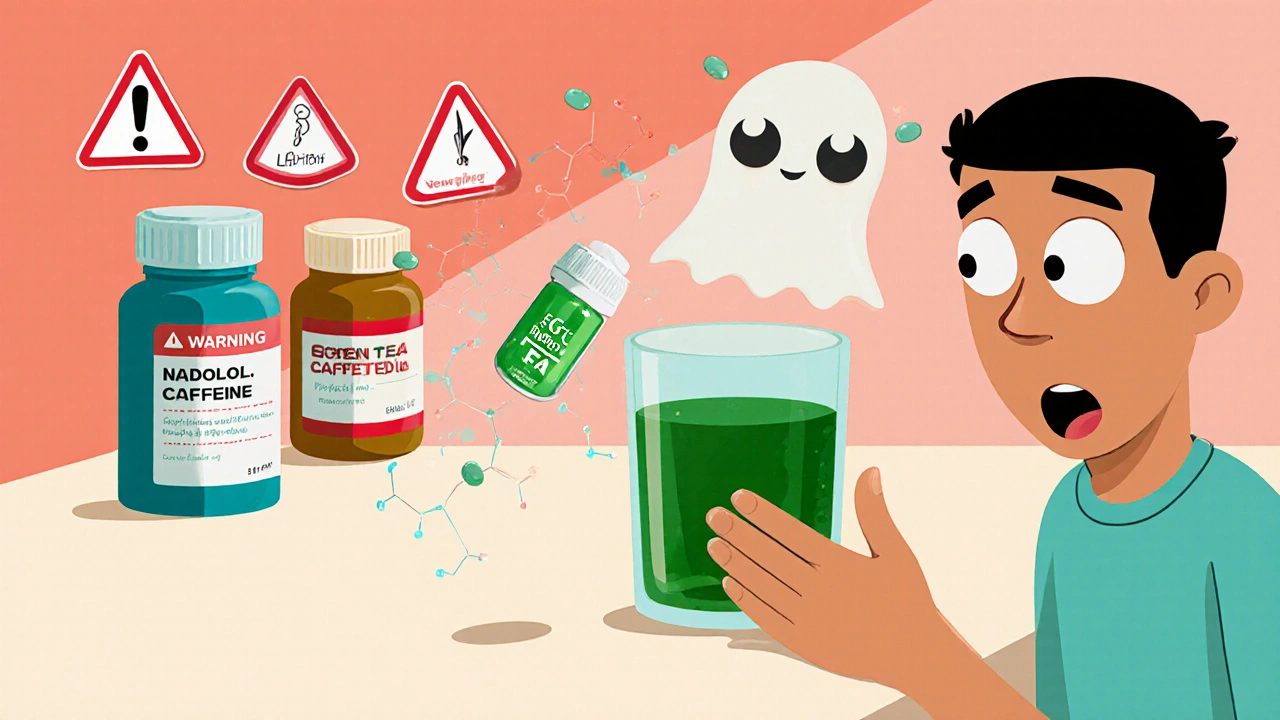
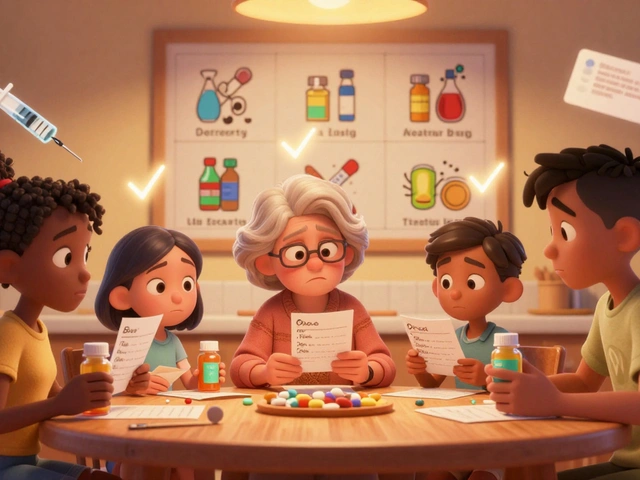
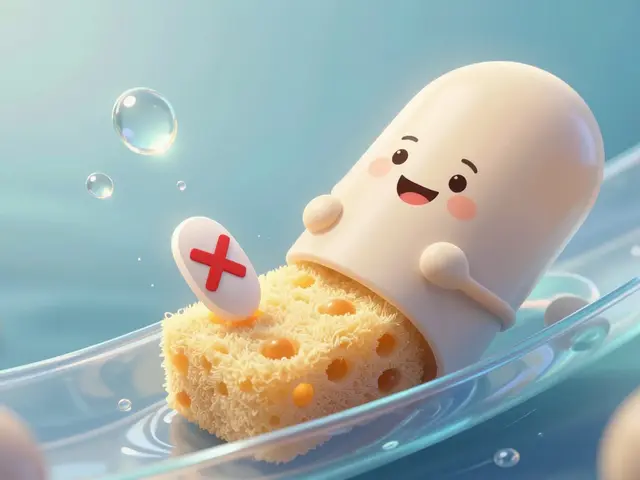
Interesting. I’ve been taking green tea extract for weight loss for two years. Never thought to ask my doctor. Guess I’m lucky my blood pressure’s still normal.
But now I’m gonna stop. Just in case.
Oh wow, another ‘natural is dangerous’ scare piece. Next they’ll tell us oxygen is a drug interaction risk.
My grandma drank green tea with her statins for 15 years. Still alive. Still healthy. Still not dead from ‘interactions.’
There’s a deeper philosophical issue here: we’ve outsourced our health literacy to corporations and algorithms. We don’t read labels because we’ve been trained to trust ‘natural’ as a brand, not a chemical reality.
Green tea extract isn’t the villain - it’s a symptom. The real problem is a system that commodifies wellness while obscuring pharmacology behind pretty packaging and influencer testimonials.
We treat supplements like candy because we’ve forgotten that biology doesn’t care about your intentions. EGCG doesn’t know you’re trying to ‘be healthy.’ It just blocks transporters. Period.
And yet, we still believe in magic pills because the alternative - responsibility, research, discipline - is too exhausting.
This isn’t about green tea. It’s about how we’ve surrendered our agency to marketing departments and regulatory loopholes.
We don’t need more warnings. We need a cultural reckoning with the illusion of easy solutions.
I appreciate the depth of this post - seriously, the stats on nadolol and bortezomib are terrifying. I’m a pharmacist, and I see this all the time. Patients come in with 12 supplements, no idea what’s in them, and think ‘it’s just tea.’
But here’s the thing: even if the science is solid, how do you communicate this without sounding alarmist? Most people tune out if you say ‘avoid everything.’
Maybe the real win is not banning extracts, but pushing for mandatory labeling - like how tobacco has warnings. And maybe pharmacies should auto-flag interactions when you pick up a prescription.
Also - brewed tea is absolutely the way to go. One cup, morning, not with meds. Simple. Effective. No drama.
So… if I drink green tea with my Adderall, am I basically doing speed? 😅
Also, I just checked my bottle - 500mg EGCG. Yikes.
Going to toss it tomorrow. Thanks for the wake-up call. 🙏
Big Pharma hates natural remedies because they can't patent them. This whole thing is a scam to sell you more pills. Green tea has been used for 4000 years. Now suddenly it's dangerous? Who benefits? The FDA? The drug companies? The supplement industry? Who's lying?
They don't want you healing naturally. They want you dependent. Wake up.
My cousin in India takes green tea with his blood pressure meds. He's 87. Still walks 5 miles a day. What's your point again?
Why are Americans so scared of everything? In Nigeria we drink tea with everything. If your medicine doesn't work with tea, then your medicine is weak. This is Western paranoia.
You don't need to wait 4 hours. You need to take better medicine.
Green tea extract is good for the body. Your pills are the problem.
Let’s get real. The pharmacokinetic data is solid - EGCG inhibits OATP1A2 and CYP3A4. That’s not opinion, that’s biochemistry. The 83% nadolol reduction? Peer-reviewed. The MD Anderson data? Published in JCO.
But here’s what nobody says: most people aren’t taking 500mg extracts daily. They’re having one cup of tea. The real risk is concentrated supplements, not brewed tea.
And yes, DSHEA is a disaster. But blaming green tea? No. Blaming unregulated supplements? Yes.
Also - if you’re on bortezomib, you’re already in a cancer center. Your oncologist knows this. Don’t self-diagnose based on Reddit.
Of course the FDA is pushing this narrative. They’re owned by Big Pharma. They banned turmeric. They banned vitamin C for cancer. Now they’re targeting green tea because it’s cheap and natural.
You think they want you healthy? No. They want you buying $500 pills every month.
My uncle took green tea extract while on chemo. He’s in remission. The doctors were shocked. Turns out nature works better than their chemicals.
Don’t trust the system. Trust your body. And stop listening to fear-mongers in lab coats.